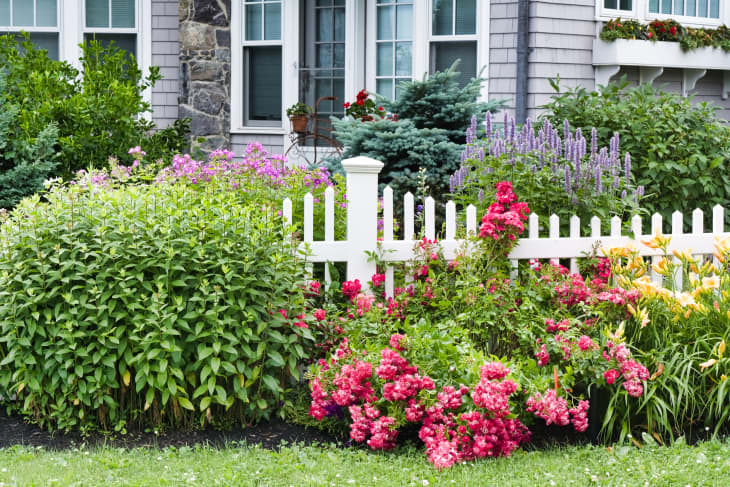7 Things Real Estate Experts Don’t Want You to Notice Around the Yard

When prospective buyers approach your home for the first time, they’re eager to get a glimpse of everything that lies beyond the front door. But they’re also likely taking a long, hard look at everything outside the home’s four walls, including the yard.
If you’re hoping to sell your home ASAP, it’s a good idea to remove, address, or update these unsightly — and potentially dangerous — things around your property, according to real estate experts.
Invasive Species
When they find their way into your yard, invasive plant species tend to make themselves right at home — often killing off or completely overwhelming beneficial, native species in the process. These interlopers might be difficult to remove, but it’s worth your time to at least try to get them under control before buyers show up for tours, says Blythe Yost, the cofounder and chief landscape architect at Tilly, an online landscaping design company.
“If you don’t want to invest in adding new landscaping, at least remove the invasive plants to provide a blank space so the homeowner can imagine something new there,” she says.
Decrepit Sidewalks
You might easily overlook your own sidewalks — especially if you park in the garage and go straight inside. But prospective buyers won’t, and they’ll be put off by cracks, crumbling, or unevenness.
“A broken or falling-apart sidewalk is not only an eye sore, but also a safety hazard,” says Yost. “When a sidewalk is worn down or falling apart, it can imply neglect and doesn’t give off a good first impression. It can also have a potential buyer worried about the care of the inside of the home, before they even step indoors.”
Underground Tanks
Before the rise of natural gas, homeowners often heated their homes with fuel oil. In many cases, they buried the tanks that contained the oil underground. These and other similar tanks can be a huge hassle to remove, fill, or cap, which means some buyers might simply walk away, even if they liked your house, says Yost.
Visible Irrigation Setups
The last thing anyone wants to see while touring your property is a tangle of hoses, protruding sprinkler heads, or complicated tubing winding around all of your plants. Instead, keep your irrigation setup neat and tidy — or, even better, totally hidden from view.
“All sprinklers should be buried or disguised within the landscaping,” says Kate Newton, a real estate agent in Los Angeles. “Prospective buyers prefer to avoid seeing visible piping laid across landscaping.”
Water Damage
Water is one of your home’s biggest foes. If you have hardscaping in your front or back yard — like a concrete patio or a path made of pavers — it’s important for those features to be properly sloped away from your home to prevent moisture from pooling up. Otherwise, prospective buyers may head for the hills.
“If a yard has poor drainage and has experienced water damage in the past, this can be a red flag for homebuyers who are concerned about potential flooding or water damage to the home,” says Florida real estate agent Alex Platt.
Weeds and Overgrown Plants
The majority of buyers want a home that they can simply waltz right into, unpack their belongings, and start livingin in — not one that will require hours of manual labor under the sweltering sun or an expensive call to a landscaping company. If your yard has seen better days, that could be a big turnoff.
“Overgrown grass, weeds, or dead plants can give the impression that the property has not been well-cared for,” says Platt.
Dead patches of grass are equally as unattractive to buyers and “show a homeowner’s lack of attention to detail,” says Newton. They may cause buyers to wonder what else you’ve been neglecting around the home and property.
An Unmaintained Pool
While reading the listing notes, some prospective buyers might be totally stoked to learn your home has a pool. But when they arrive, they’ll be disappointed if the pool is actually a disaster, complete with dirty tiles, cracked grout, a run-down interior surface, or weeds growing between pavers.
“Trying to remodel a pool can get quite costly and it is easier to just start from scratch with a backyard that doesn’t have one in the first place,” says California and Florida real estate agent Cara Ameer.